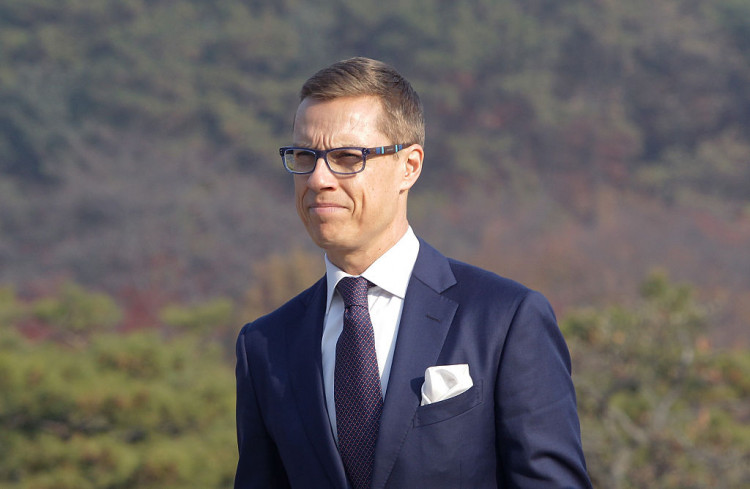On 11 February, Finland elected its new President, Alexander Stubb, the National Coalition Party candidate.
Stubb, a self-proclaimed ‘sports-nut’, avid triathlete, and former golfer, has an extensive background in academia and politics. Namely, he has served as Finland’s Prime Minister, Finance Minister, Foreign Minister and Trade and Europe Minister, as an active and well-known representative of the EPP group, before he was entrusted as the Director of the School of Transnational Governance at the European University Institute in Florence.
A victory for Stubb, by a whisker
Electing Alexander Stubb as President marks a historic turning point, not only for its razor-thin margin but also for the potential shift in security, foreign policy, and its connection with the European Union. While both candidates emphasised peace, their differing stances reflected a nation navigating complex choices in times of uncertainty. Finland has and will always have a key role in navigating the political tensions between the EU and Russia, and Stubb who would have snubbed Putin’s congratulatory call, will officially be sworn into office on 1 March 2024.
Stubb's victory, with a mere 3.2% lead over Green Party candidate Pekka Haavisto, reflects a divided nation – with the underpinning premise of the Finnish people’s well-being and security in times of crisis and uncertainty.
The division underscores internal debates on the best strategy for regional security in light of Russia's aggression, which has significant implications for Finland and Europe, particularly given Finland's direct border with Russia. During the Presidential campaign Stubb advocated for deeper cooperation with the US and NATO, without elaborating on the potential implications it could have on geopolitics or EU officials calls for increased sovereignty. Though prioritising hard realism in foreign policy, Stubb recognises the role of the President that necessitates both strength and empathy to achieve his vision of a more open, secure, and international Finland.
Examining Finland’s stance on NATO, their position in the EU and fundamental international dynamics
While maintaining peace is the fundamental mandate of the Finnish President, Stubb's proposed path provokes questions on Finland’s role in NATO. Increased US and NATO presence, coupled with nuclear weapons deployment, could be perceived as provocative by Russia, fuelling regional tensions. Finland has traditionally maintained a delicate balance between engaging with the West and avoiding antagonising its eastern neighbour. Stubb's stance may alter this equilibrium, requiring skilful diplomacy to navigate potential consequences. Stubb’s first few months in office will be telling of what we may expect during his mandate as Finland’s President.
In the meantime, it is also crucial to consider the EU element in this equation. Since Finland’s accession to the EU in 1995 (membership ratified in 1994), it has been a staunchly pro-EU member especially focused on pragmatic integration, cooperation, and balancing national interests within the bloc. Legacy would dictate a continued approach in maintaining that balanced approach. With Stubb coming into office, any significant shift in Finnish security profile could have major implications for the EU's overall stance towards Russia. Stubb will need to carefully navigate his policies within the broader context of EU foreign policy and security goals.
Focusing closer to home
Domestically, Stubb's policies might face considerable pushback. Public opinion in Finland leans towards neutrality and cautious engagement with Russia. The notion of Finland’s neutrality was already raised during the electoral campaign. Consequently, embracing a more overtly pro-Western stance could spark internal controversies for Stubb. Internationally, Finland's strategic position as a NATO member bordering Russia makes its policies closely monitored by global actors. Any significant shift in Finnish security posture could impact regional dynamics, alliances, and the EU's strategic position.
Given Finland’s importance for EU’s regional stability with Russia, legacy predicts that Finland should maintain itself as a bridge between East and West. Therefore, Stubb must navigate a delicate balance, considering Finland’s recent accession to NATO while also contributing to the strengthening of EU’s defence capacities.
I believe that this is one of Stubb’s ambitions. Ultimately, his success will hinge on his ability to reconcile competing priorities, address domestic concerns, navigate the complex geopolitical landscape, and ensure Finland's security and prosperity while contributing to a stronger and more united EU.
As we approach the EU elections in June, speculation mounts about who will assume the role of Finland's next Commissioner. Stubb would have been an excellent candidate for Finland’s next Commissioner, but being elected as the President, the government will put forward someone else from the ruling coalition; the National Coalition Party. In the meantime, some prominent names have been floated around in the national and EU circuits already, but who it will be remains uncertain until later this year.






